The Australian Bureau of Statistics (ABS) has released the consumer price index (CPI) for the March quarter, which recorded a headline inflation rate of 1.0% over the quarter and a rate of 3.6% over the year:
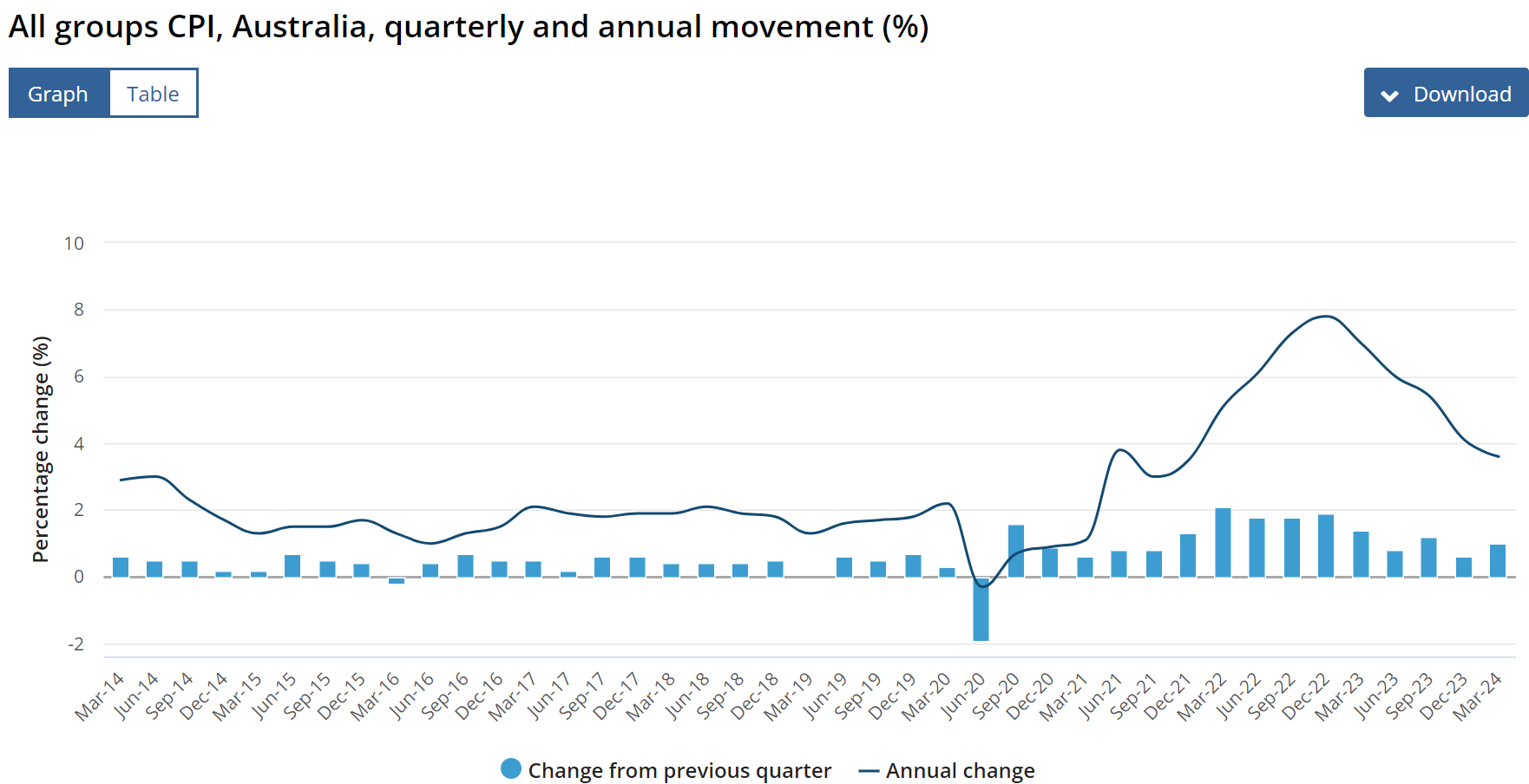
Trimmed mean inflation also rose by 1.0% over the quarter to be up 4.0% in the year to March (down from 4.2% in the December quarter):
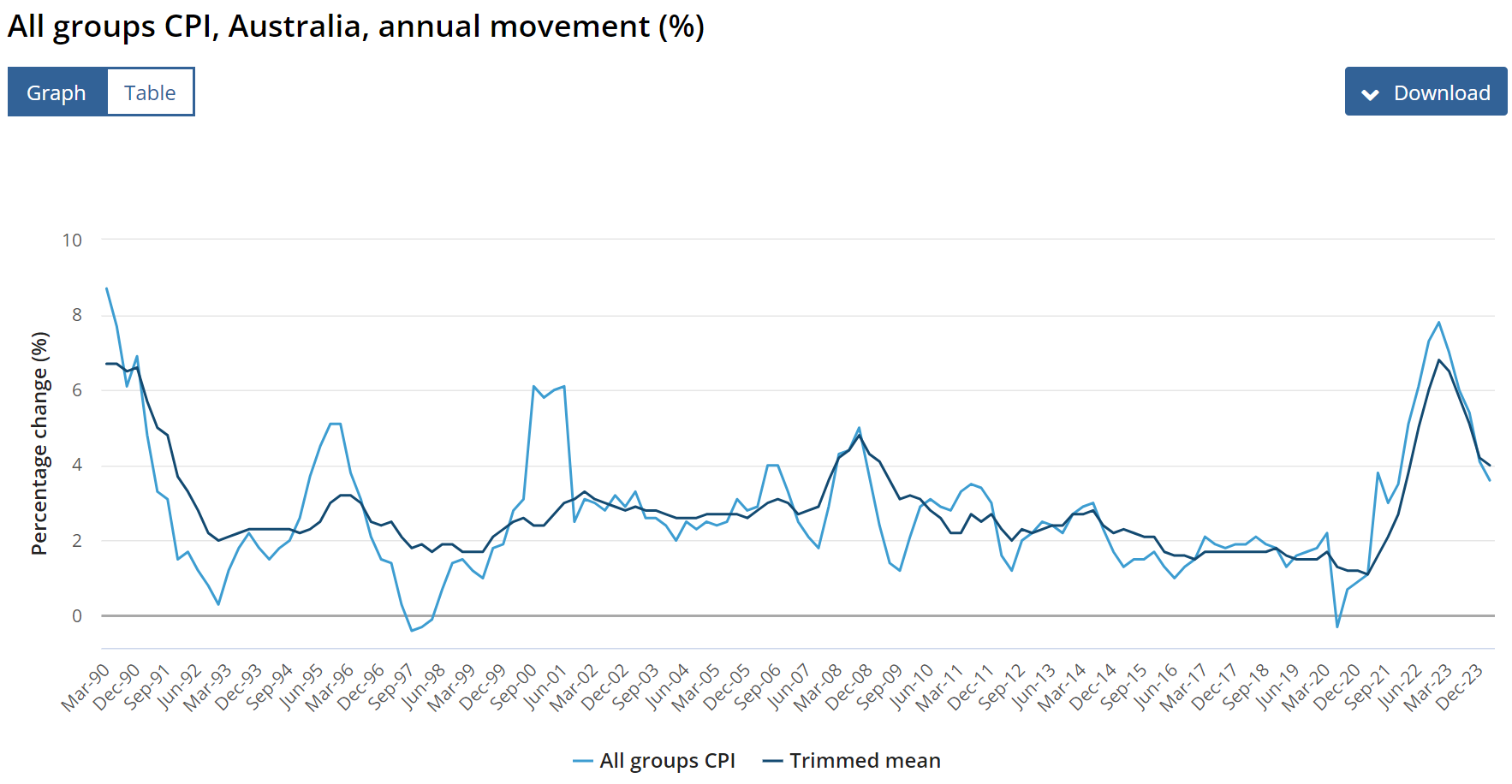
The headline result was higher than market expectations, which tipped a 0.8% quarterly rise and an annual rate of 3.4%.
Quarterly trimmed mean inflation also rose by 0.2% for the December quarter, i.e. to 1.0% from 0.8%.
According to the ABS, “the most significant contributors to the March quarter rise were Education (+5.9%), Health (+2.8%), Housing (+0.7%), and Food and non-alcoholic beverages (+0.9%).
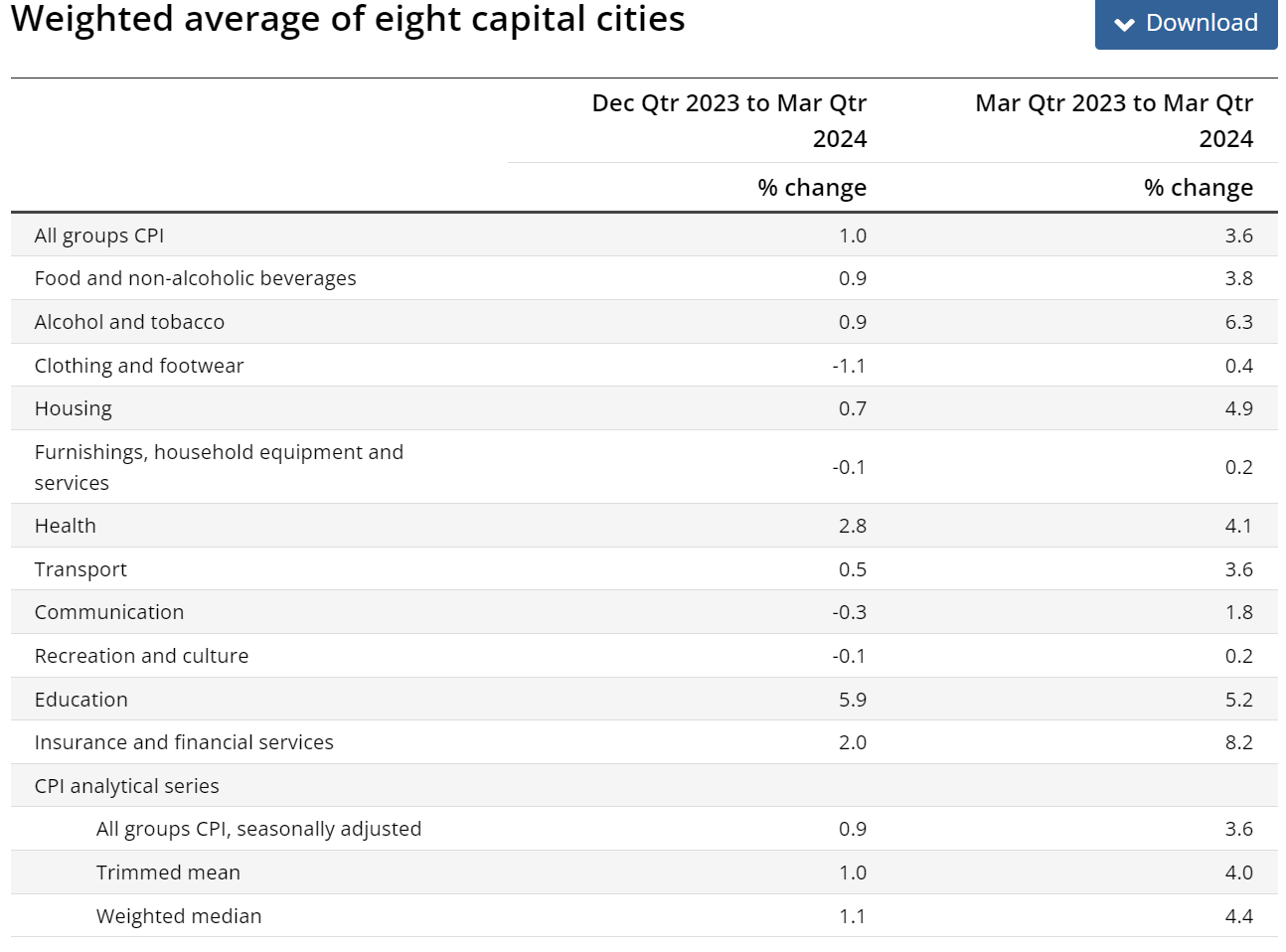
Housing inflation, in particular, continues to pose a major problem:
The quarterly rise in Housing was driven by Rents (+2.1%) and New dwellings purchased by owner-occupiers (+1.1%).
Rental prices rose 7.8% annually, the strongest rise since the March 2009 quarter. Rental price growth continues to reflect low vacancy rates and a tight rental market.
The rate of growth in rental prices is moderated by changes to Commonwealth Rent Assistance (CRA), with rent assistance rates updated by CPI indexation on 20 March and 20 September each year.
In addition, last September significant changes were made to the CRA with the maximum rate available for CRA increasing by 15%. Excluding these changes to CRA, rents would have increased by 9.5 % over the 12 months to the March 2024 quarter.
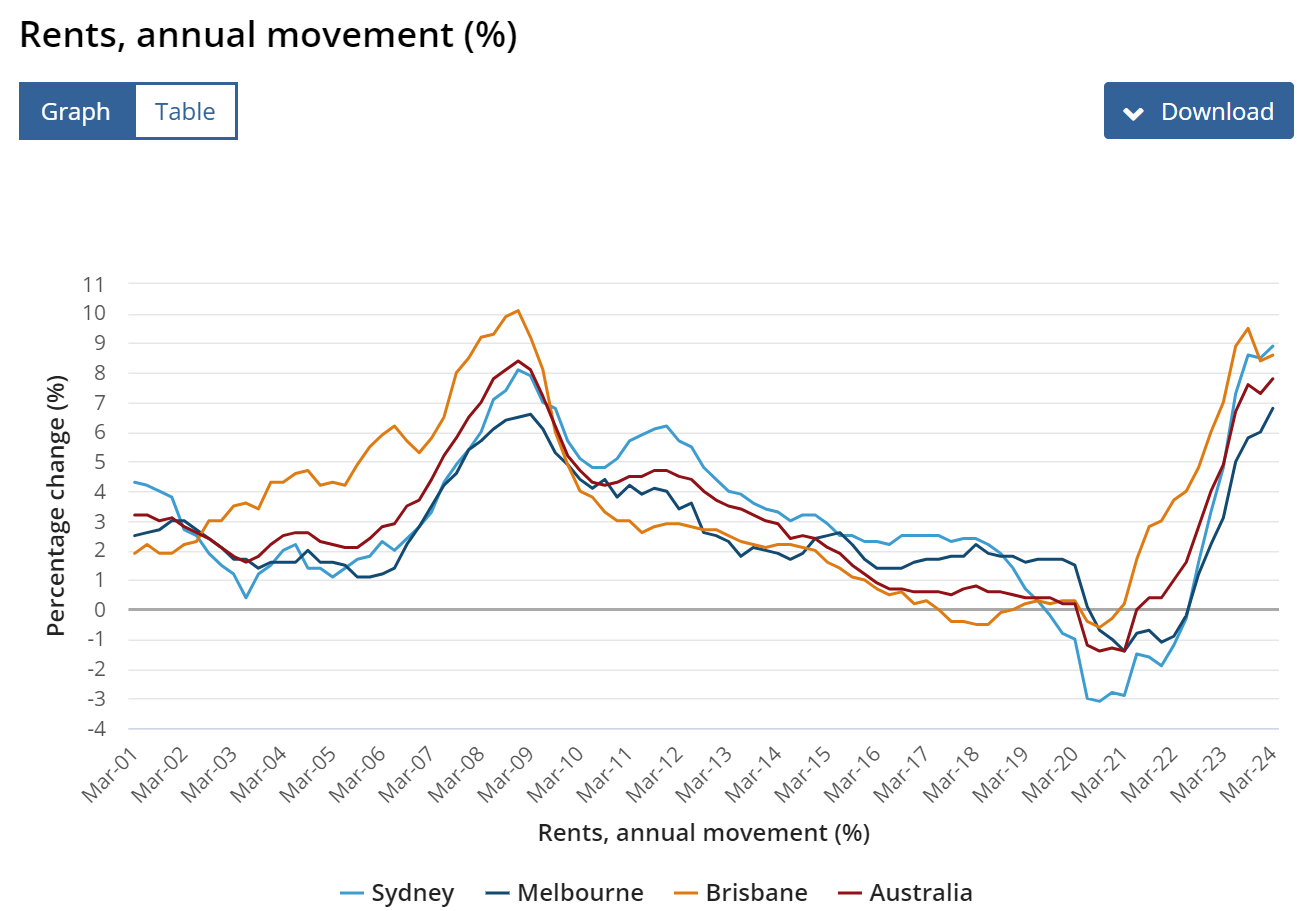
The monthly CPI indicator has also flatlined at around 3.5% and refuses to come down:
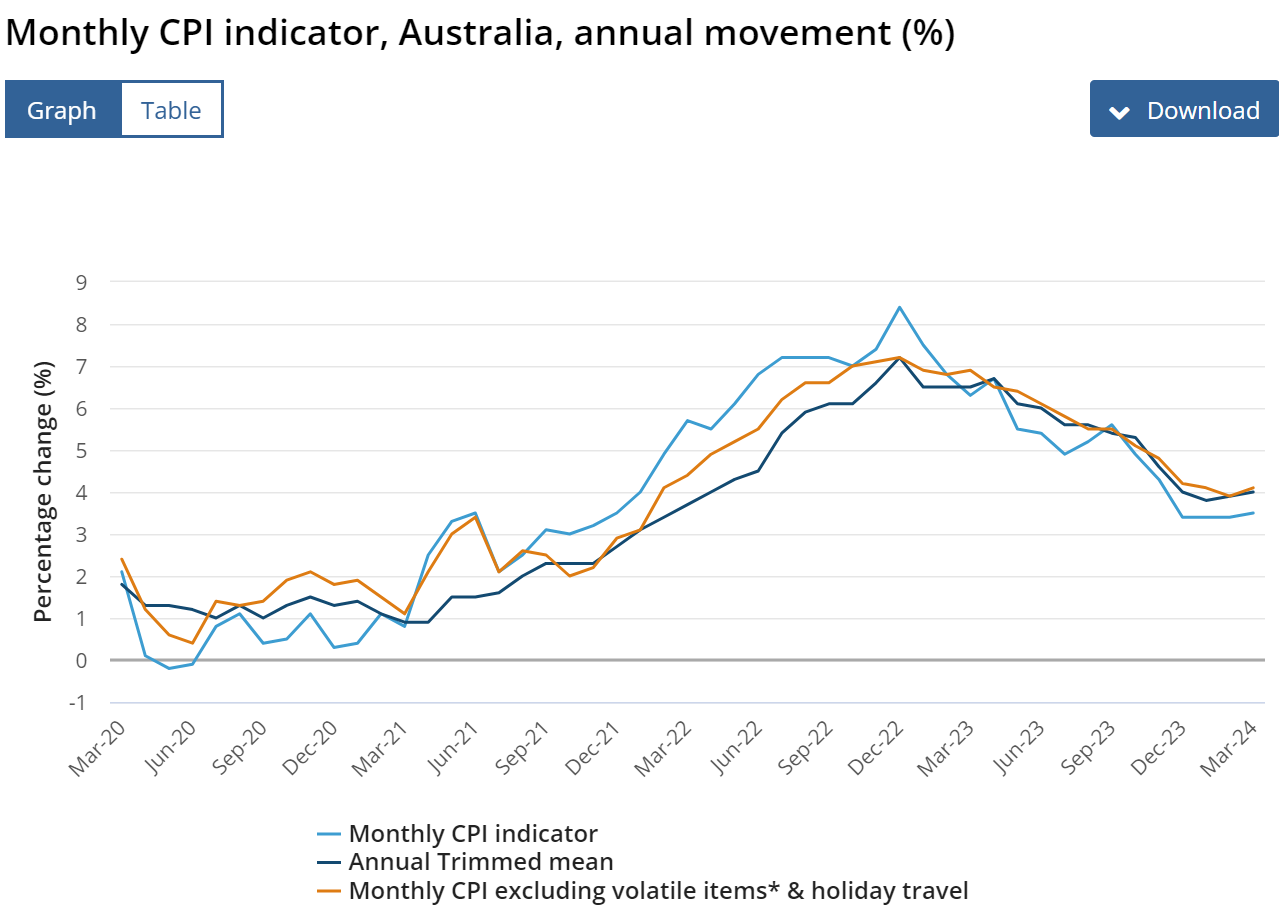
The stronger than expected result has obviously dented the case for rate cuts this year, although it is still early days.
Welcome to the everything shortage!
If the Albanese government keeps jamming people in, inflation will remain stubbornly high.

